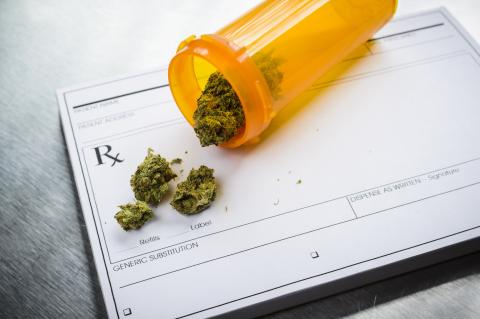Last month, the Veterans Health Administration issued a new policy dictating the way that VA health care providers handle the issue of medical marijuana for the millions of US veterans who would potentially benefit from the drug.
Some say this is progress and hail it as a step in the right direction. However, critics say it’s just more smoke and mirrors, with no substance.
According to VHA Directive 1315, the new policy provides direction “regarding access to VHA clinical programs for Veterans participating in a State-approved marijuana program.”
So what does that mean exactly?
It means that VA health care providers can now talk about medical marijuana with their patients.
Previously, the VA had a gag order on any medical marijuana discussion at all. But this is also the sticking point for pot advocates and may even open up a whole host of new issues for veterans.
This new directive wants veterans and their providers to "discuss how marijuana may impact other aspects of the overall care of the Veteran such as how marijuana may interact with other medications the Veteran is taking, or how the use of marijuana may impact other aspects of the overall care of the Veteran such as pain management, Post-Traumatic Stress Disorder (PTSD), or substance use disorder treatment).”
“This updated policy will help encourage veterans using medical cannabis to more openly and fully discuss their health care options with VA medical providers with full reassurance that their VA benefits remain secure,” said Denise Rohan of The American Legion.
While it’s always good for communication barriers between patients and providers to be removed, in this case skeptics are saying that the information gained will simply be used to deny veterans further medical care based upon their choice to use state-approved medical marijuana programs.
This concern is based upon specific language in the directive that reads:
“Providers need to make decisions to modify treatment plans based on marijuana use on a case-by-case basis, such decisions need to be made in partnership with the Veteran and must be based on concerns regarding Veteran health and safety.”
“There are real ramifications to being classified as a cannabis user at the VA,” said Sean Kiernan, president of the Weed for Warriors Project.
“Your available medical options are curtailed once you are identified as someone with a substance abuse disorder, which is what you are classified as if you use cannabis. It’s not just pain meds that are cut off; it’s any medicine that has addiction issues.”
The new VHA directive still prevents providers from prescribing or recommending marijuana to patients. Because marijuana is a Class I controlled substance, it cannot be prescribed, by law, but it can be “recommended” in those states that allow medical marijuana legally.
Unfortunately for VA health care providers, the VA is essentially violating their First Amendment rights as upheld by the Supreme Court in 2003. The court found that doctors have a right to provide recommendation of cannabis to patients as long as they don’t actually provide the drug.
There is also no federal law that prohibits government doctors from filling out marijuana recommendation forms in the states where it’s legal, even though it remains illegal under federal law.
Those veterans who wish to use medical marijuana for the conditions which it’s effective still have to obtain it outside of the VA system, something that is often confusing, costly and time consuming, and now could potentially lead to jail time anyway.
Attorney General Sessions has announced that he is rescinding the Obama-era rules that left states alone that legalized marijuana.
The change, which was announced just days after California’s pot legalization took effect, leaves several states and tens of thousands of veterans in limbo. California is the most populous of the 8 states to legalize recreational marijuana, while 21 others allow marijuana for medical use.
Photo Credit: Brian Goodman / shutterstock.com
